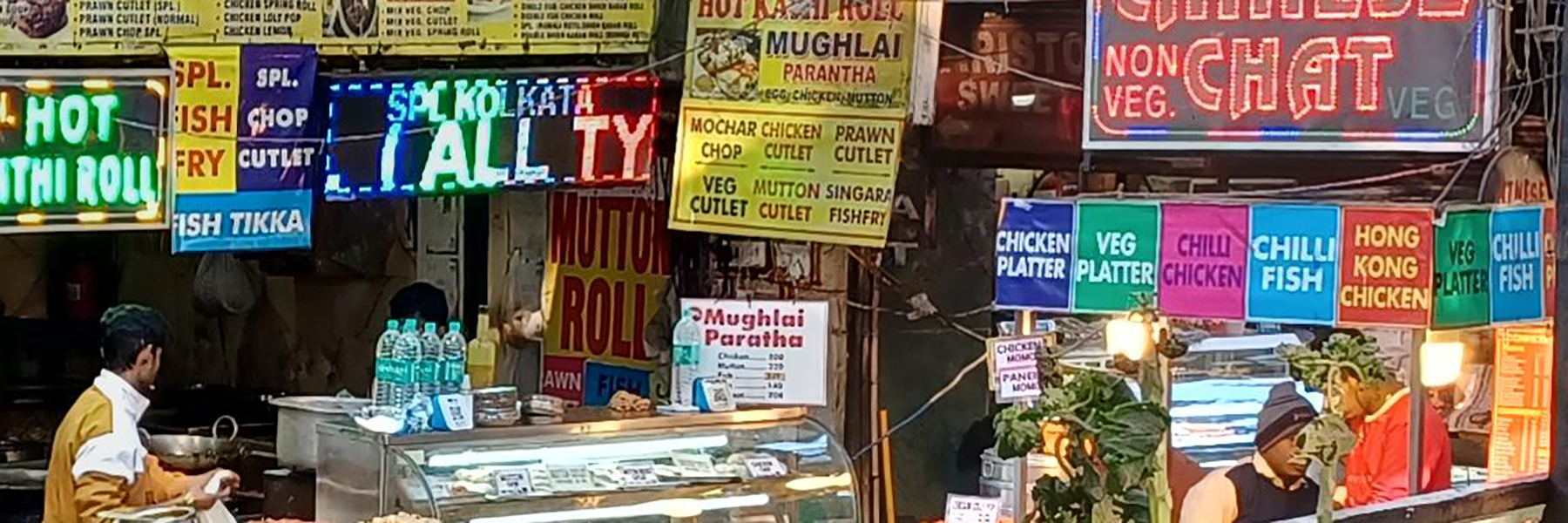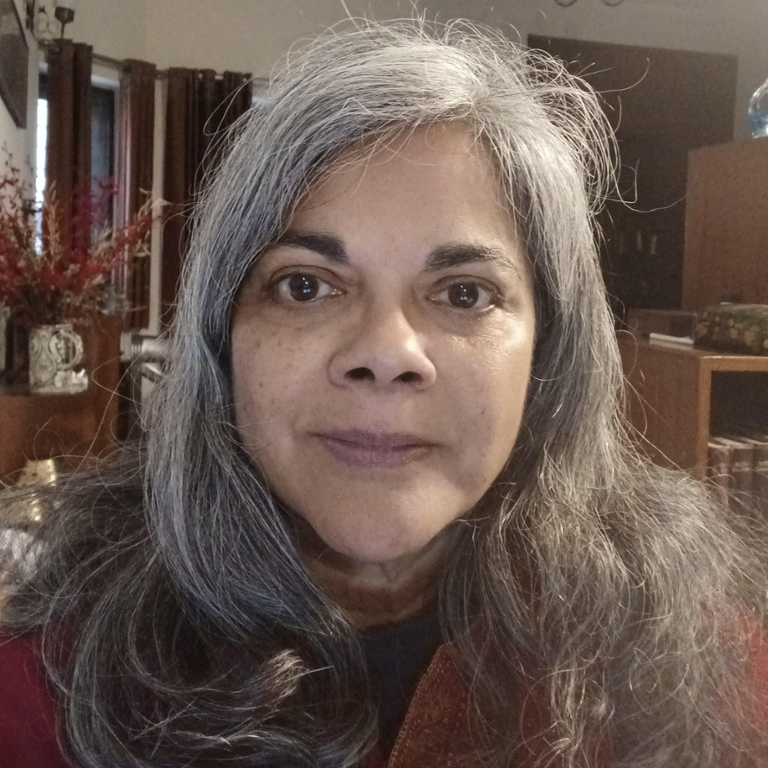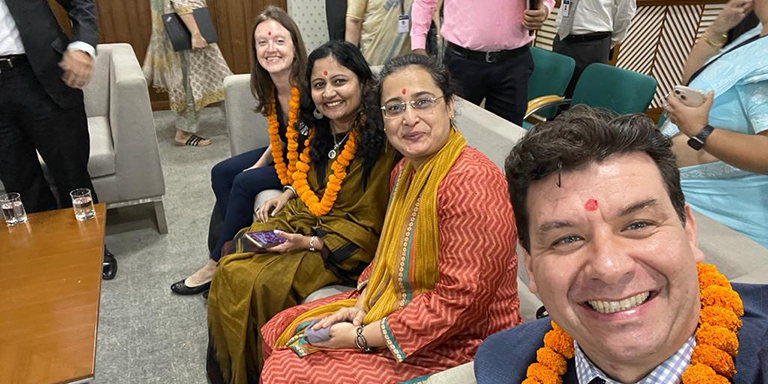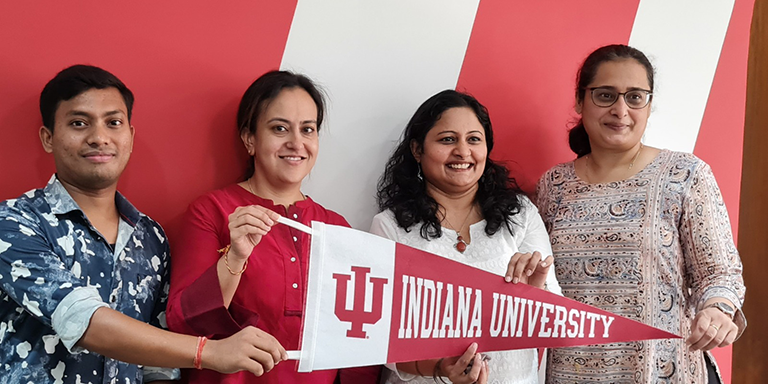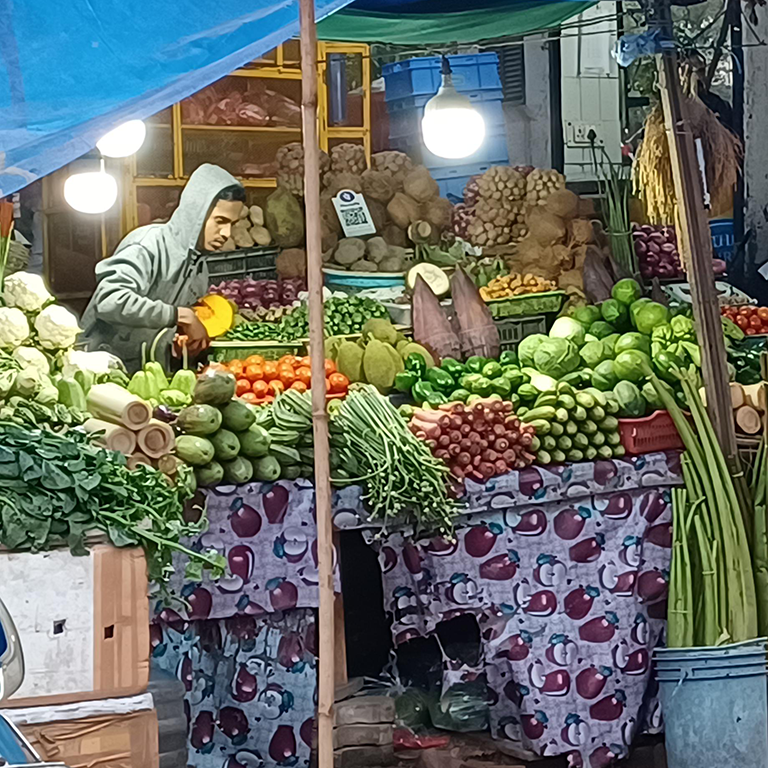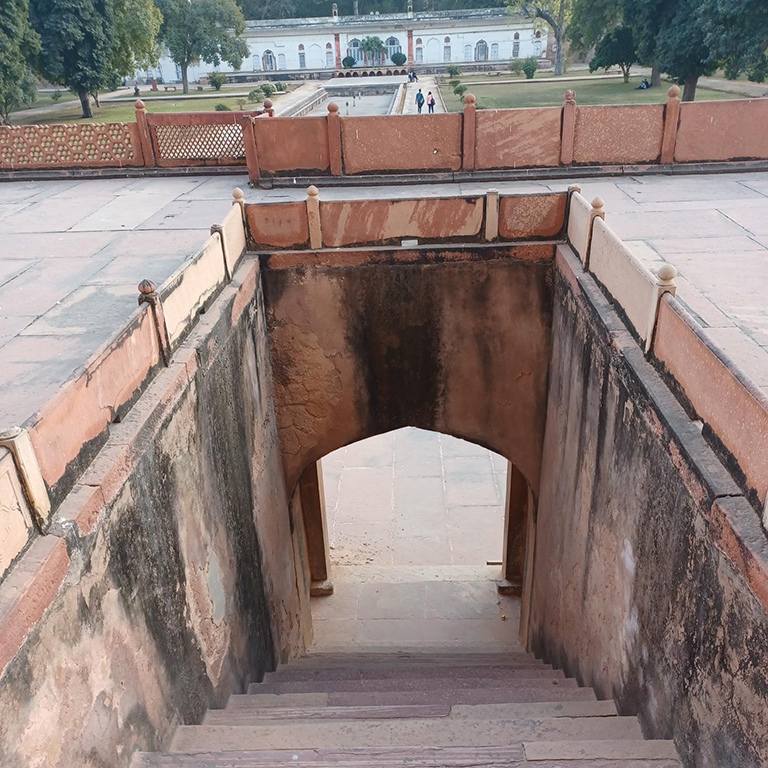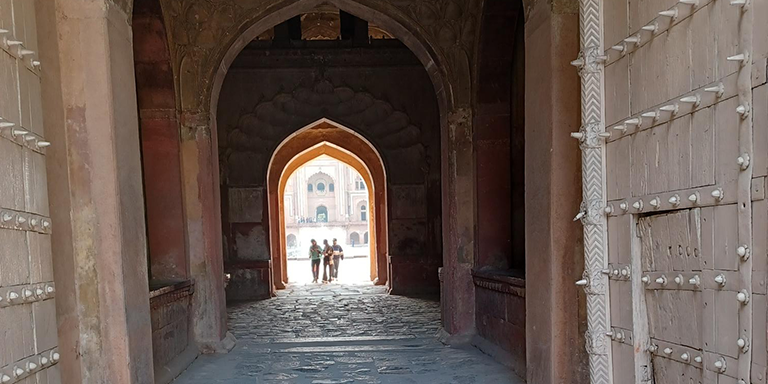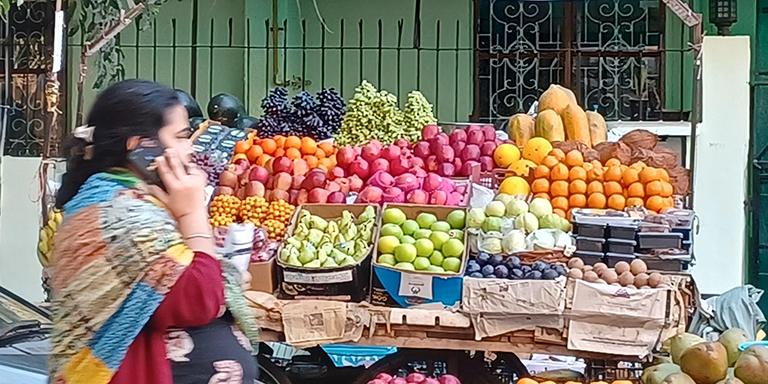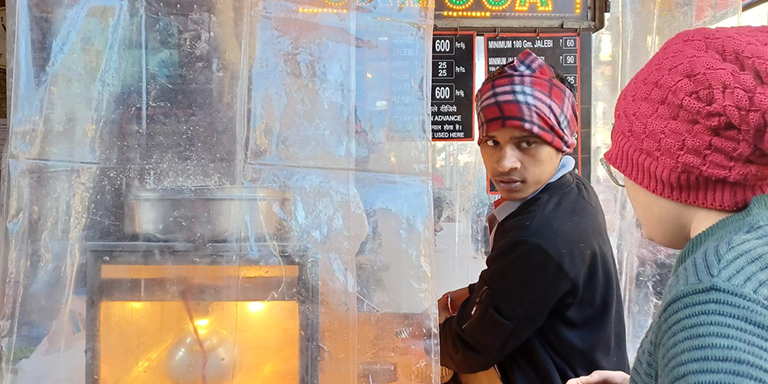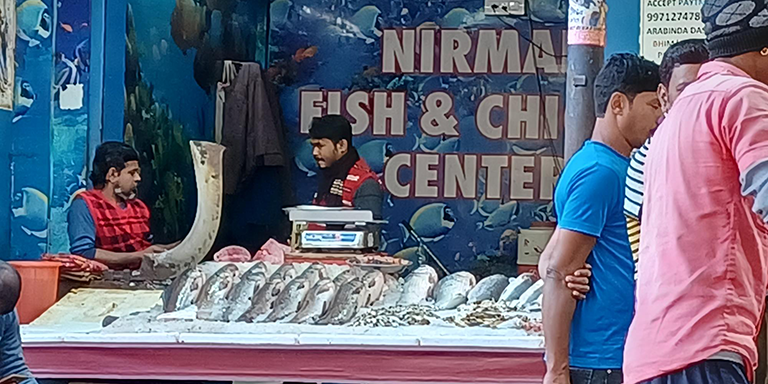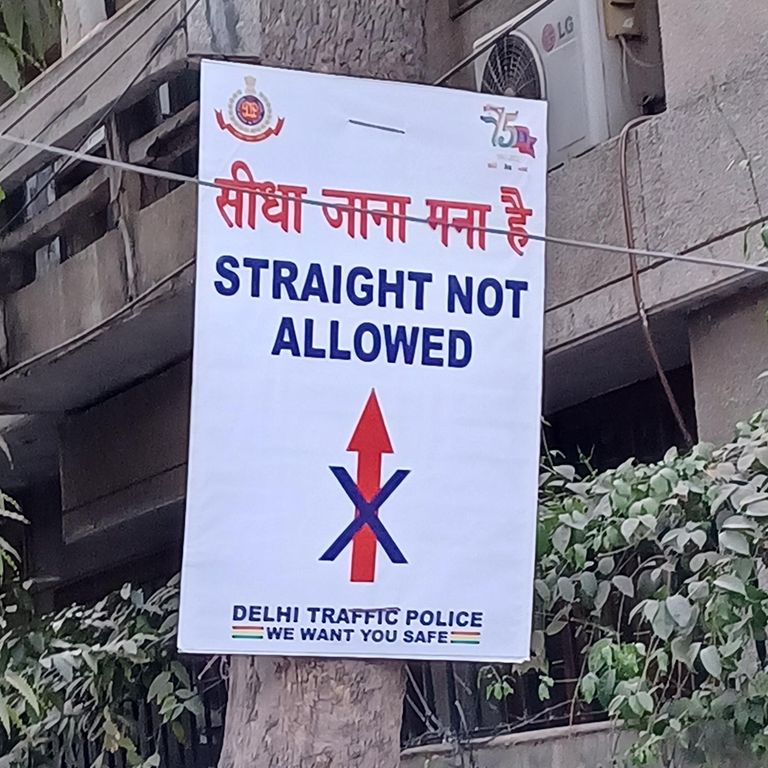Her first book, “Organizing Empire: Individualism, Collective Agency, and India,” examined discourses of individualism in accounts of nationalism, the Indian and Irish women’s movements, and the Raj. Since then, her research interests have cohered around corporations, globalization, and war. With frequent collaborator Laura E. Lyon, Purnima co-edited an anthology, “Cultural Critique and the Global Corporation,” as well as a special issue of Biography on corporate personhood, which offers analyses of different iterations of the corporate form in Canada, China, India, Singapore, and the United States. Her most recent book, “Intervention Narratives: Afghanistan, the United States, and the Global War on Terror,” analyzes films, memoirs, and novels that have circulated in the U.S. about its clandestine and overt military operations in Afghanistan from 1979 to the present.
Purnima earned a Bachelor of Arts in English from University of Notre Dame; completed Hindu/Urdu Language School at University of Wisconsin Madison; served as Language Fellow at the American Institute of Indian Studies in Varanasi, India; and earned a Ph.D. in comparative literature at University of Texas Austin.
She began her role as academic director of the IU India Gateway in New Delhi in 2022.
Top (back to front): Kate Dobson, then the associate director of global engagement, IU Alumni Association, IUPUI; Minu Thomas, program coordinator, IU India Gateway; Zafeena Suresh, director, IU India Gateway; and David Bolchini, professor & Chair, Human Centered Computing, Luddy School. Bottom left (left to right): Kashinant Barman, staff member, IU India Gateway; Shweta Khanna, Regional English Language Specialist, U.S. Embassy, New Delhi; Minu and Zafeena. Right: Chittaranjan Park Market 1 in January 2023.
Q: Congratulations on your new role with the IU India Gateway! What are your plans for the coming months?
A: Thank you! I plan to continue familiarizing myself with the overall operations of the India Gateway, which serves IU Bloomington and IU Indianapolis faculty across the state. In the coming months, I will work with colleagues at IIT-Delhi and our partner institution Ambedkar University Delhi to organize a virtual lectures series titled “Diversity, Development, and Dignity.” In addition, the gateway has several initiatives in the planning stages, including a workshop on academic writing conducted by colleagues at IUPUI and another panel in the works on art and the pedagogy of citizenship.
Q: What do you want IUB faculty to know about how they can connect with the gateway office?
A: Faculty can connect with the gateway office by emailing the academic directors of the relevant individual branches. In addition to the IU India Gateway, we have offices in Mexico City, Berlin, Bangkok, and Beijing. The website also lists funding opportunities, information on IU’s partnerships, and opportunities for faculty and student exchanges. I want to emphasize that academic activities at the gateways are faculty-driven, and we are always happy to brainstorm ideas for initiatives with colleagues.
Left and Top: Despite her many visits to India, Purnima said she still enjoys visiting tourist attractions like Safdarjung's tomb, built in 1754. "The Mughal monuments have an austere beauty which never fails to captivate and soothe." Bottom: Purnima said one underappreciated aspect of India is its great variety of flavorful fruits and vegetables.
Q: What do you want people to know about the India Gateway that they might not know?
A: The India Gateway helps faculty organize a range of activities across different disciplines that enhance IU’s research and teaching mission.
We have fantastic colleagues on the ground in New Delhi, Zafeena Suresh and Minu Thomas, who both have a background in higher education and are very well networked. They have facilitated virtual workshops with IU faculty for Indian high school students on diverse topics such as storytelling through design and cinema, the politics of T-shirts, and data visualization. With Zafeena and Minu’s assistance, faculty have organized conferences on such topics as building resilience to climate shocks in the Himalayan region; creative writing; and media and democracy. The India Gateway has also hosted book-related events, such as a recent workshop on "The Oxford Handbook of Indian Foreign Policy" and the launch of Arvind Verma’s “She Must Not Die: Extraordinary Tales of Indian Policing India, My Life in the Service.”
India has a vibrant higher education sector, and the gateway office hosts events that foster cross-cultural understanding and nurture collaborative research. Our office is centrally located and has beautiful meeting spaces, including a conference room, classroom, and a terrace garden ideal for receptions. It is an extraordinary setting for gathering with academics and students in India. Faculty can request reservations on the IU Global website.
Q: How does the gateway interact with IU’s partner institutions in India?
A: Covid put a pause on face-to-face interactions for several years. Our interactions during the height of the pandemic consisted of virtual talks and panel presentations. Last fall, we happily resumed face-to-face activities. Our interactions with IU’s partner institutions (Ambedkar University Delhi, FLAME University, and O.P. Jindal Global University) include organizing joint symposia, participating in student exchanges and cooperative academic programs, and facilitating short-term faculty exchange programs.
Top: World-famous jalebis in New Delhi's Chandni Chowk market. Bottom left: Chittaranjan Market 2, a neighborhood established for refugees in the 1960s, was initially called the "East Pakistan Displaced Persons Colony." It was renamed Chittaranjan Park in the 1980s in honor of freedom fighter Deshbandu Chittaranjan Das. "During my youth, CR Park was on the barren outskirts of Delhi," Purnima said. "Now, however, it has been folded into the city." Right: "This traffic sign is a delightful example of something gained in translation!"
Q: What projects do you currently have in the works?
A: I am currently working on a manuscript that builds on my book “Intervention Narratives” that analyzes different representations of Afghan women in literature, journalistic accounts, and historical memoirs. I’m interested in how dominant neo-colonial patterns of representation persist and are replicated in accounts of life under the Taliban following the hasty U.S. withdrawal in August 2021. In addition, I would like to explore the South Asian context more fully. Since 2001, India has invested heavily in humanitarian assistance and the development of Afghanistan’s infrastructure. While India’s continued investment in Afghanistan is uncertain, I want to understand this dimension in relation to questions of gender and representation.
I would also like to write a more personal meditation on Juan Ramón Jiménez’s “Platero and I,” a book my father gave me as a young child. Rereading the book has been a way to connect with my father, Samir K. Bose, whom I lost in 2020. I'd like to explore literary criticism on this book, the historical context represented in its pages, and speculate on the meanings that my father hoped I would extract from this tale of a man and his donkey in a small Spanish town. I don’t intend to publish this essay, which is meant both as a form of literary communion and a tribute to my father. I guess this essay falls under the category of “writing for writing’s sake!”


